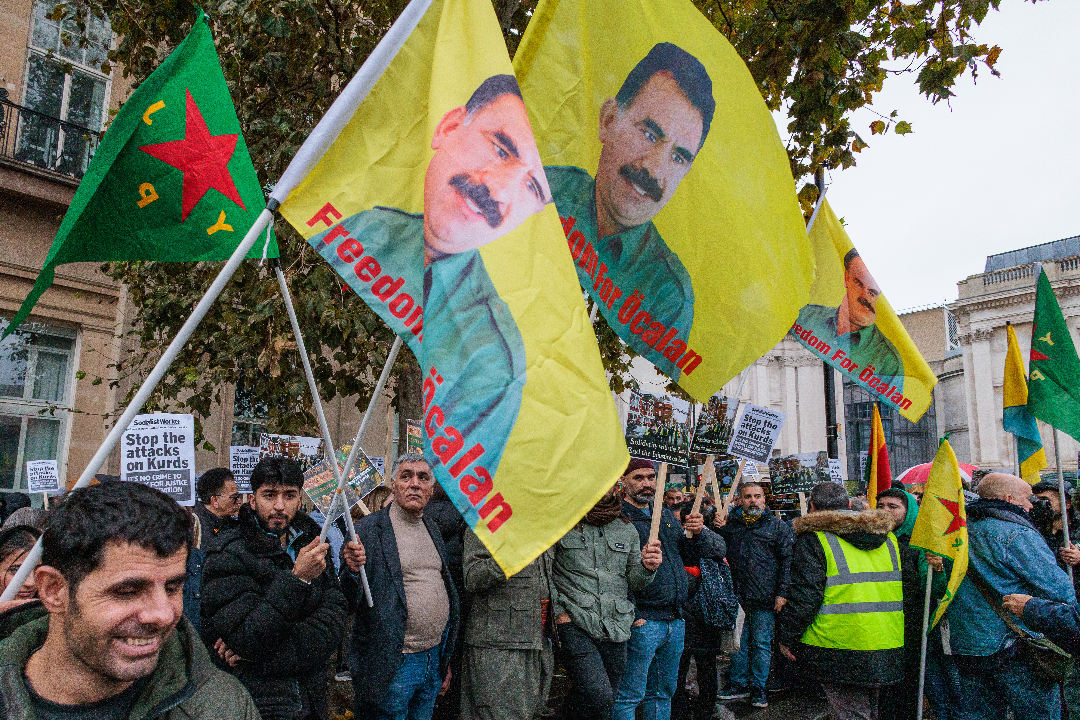After dinner with the Kurdish family with whom we are staying, we sit down in front of the TV. The host flicks through the many Turkish channels. Most show the same heated discussions. The so-called experts on screen are all obsessed with one subject today: Abdullah Öcalan, the Kurdistan Workers’ Party (PKK), the Kurds, and Rojava.
After years of censorship, discussions of such topics are new and surprising. For some time now, the once-polyphonic Turkish media landscape has been almost completely under the control of the government and associated businessmen. Turkey ranked 165th out of 180 in Reporters Without Borders’ 2023 press freedom ranking. Yet the news agenda can sometimes change suddenly. If the authorities wish, the Turkish media can turn an elephant into an ant — or vice versa.
In late October, Devlet Bahçeli, from the Nationalist Movement Party (MHP) — a fascistic ally of President Recep Tayyip Erdoğan — surprisingly proposed that Öcalan, who had been sentenced to life imprisonment, be released on parole if he “renounces violence and disbands the PKK.” Erdoğan followed up by stating that Turkey must solve problems instead of ignoring them.
On October 23, Ömer Öcalan, Abdullah Öcalan’s nephew (who is also a member of parliament for the Peoples’ Equality and Democracy Party, DEM), was able to see him on the Turkish prison island of Imrali as part of a “family visit.” This marked an end to forty-three months of isolation, during which time no sign that Öcalan was alive had reached the outside world. Öcalan’s message was short and clear: “The isolation continues. When the conditions arise, I have the theoretical and practical strength to steer this process from the basis of conflict and violence to a…
Auteur: Devriş Çimen

